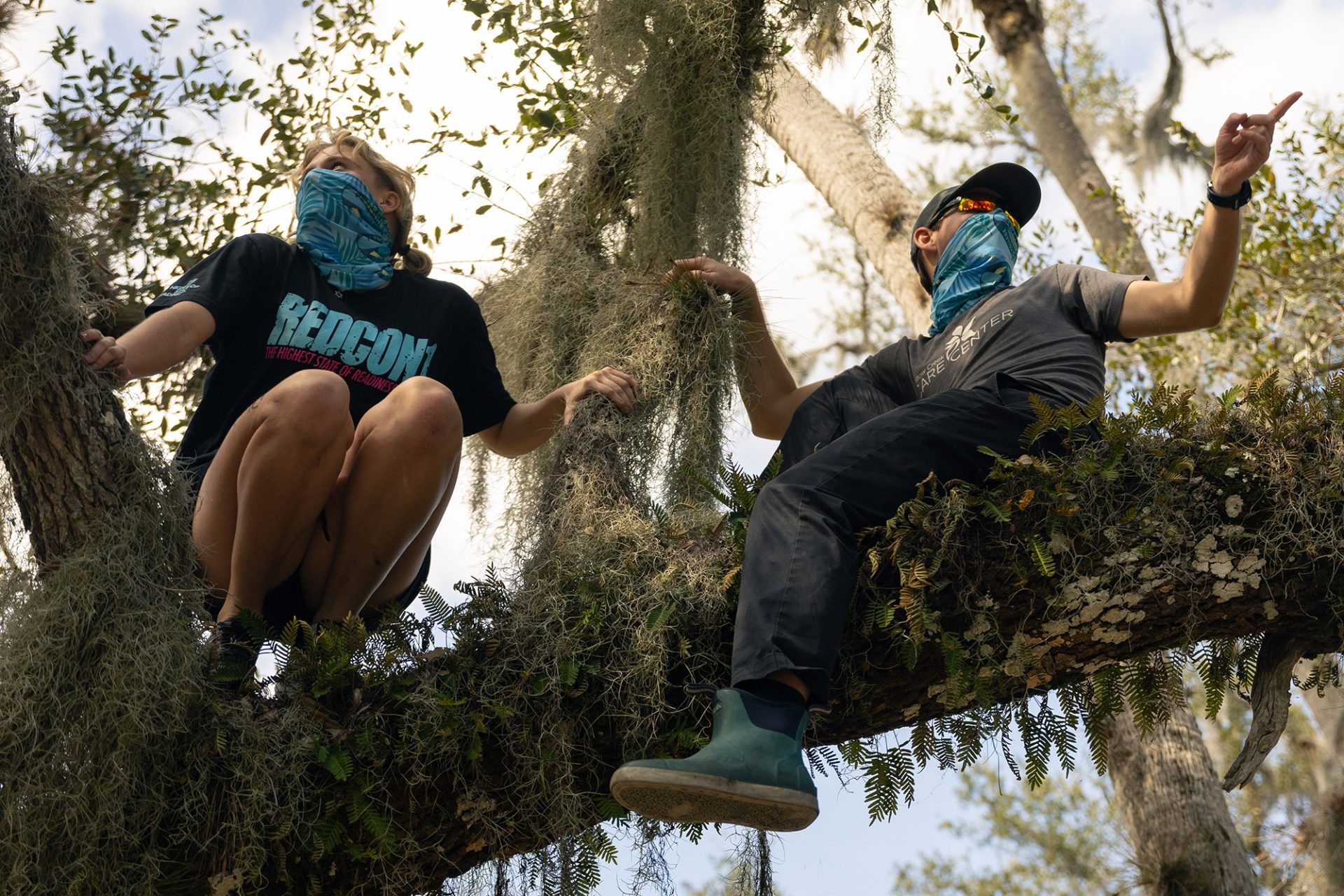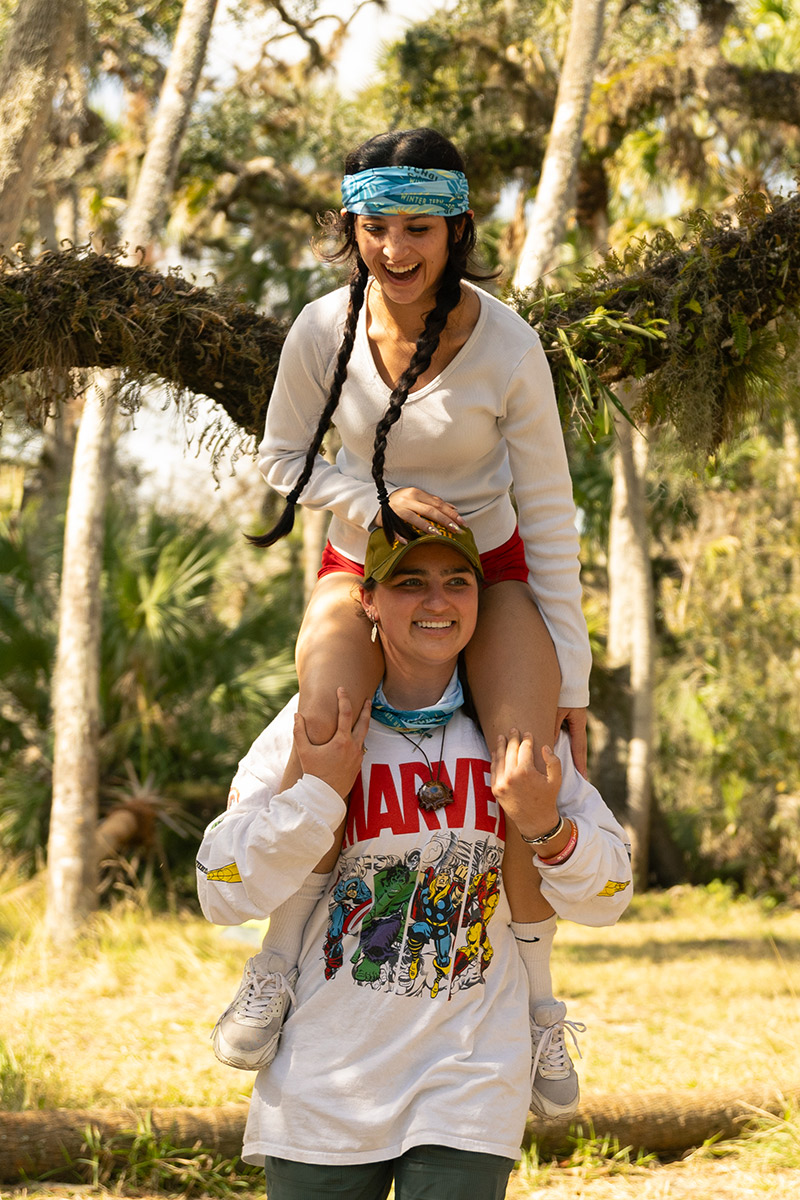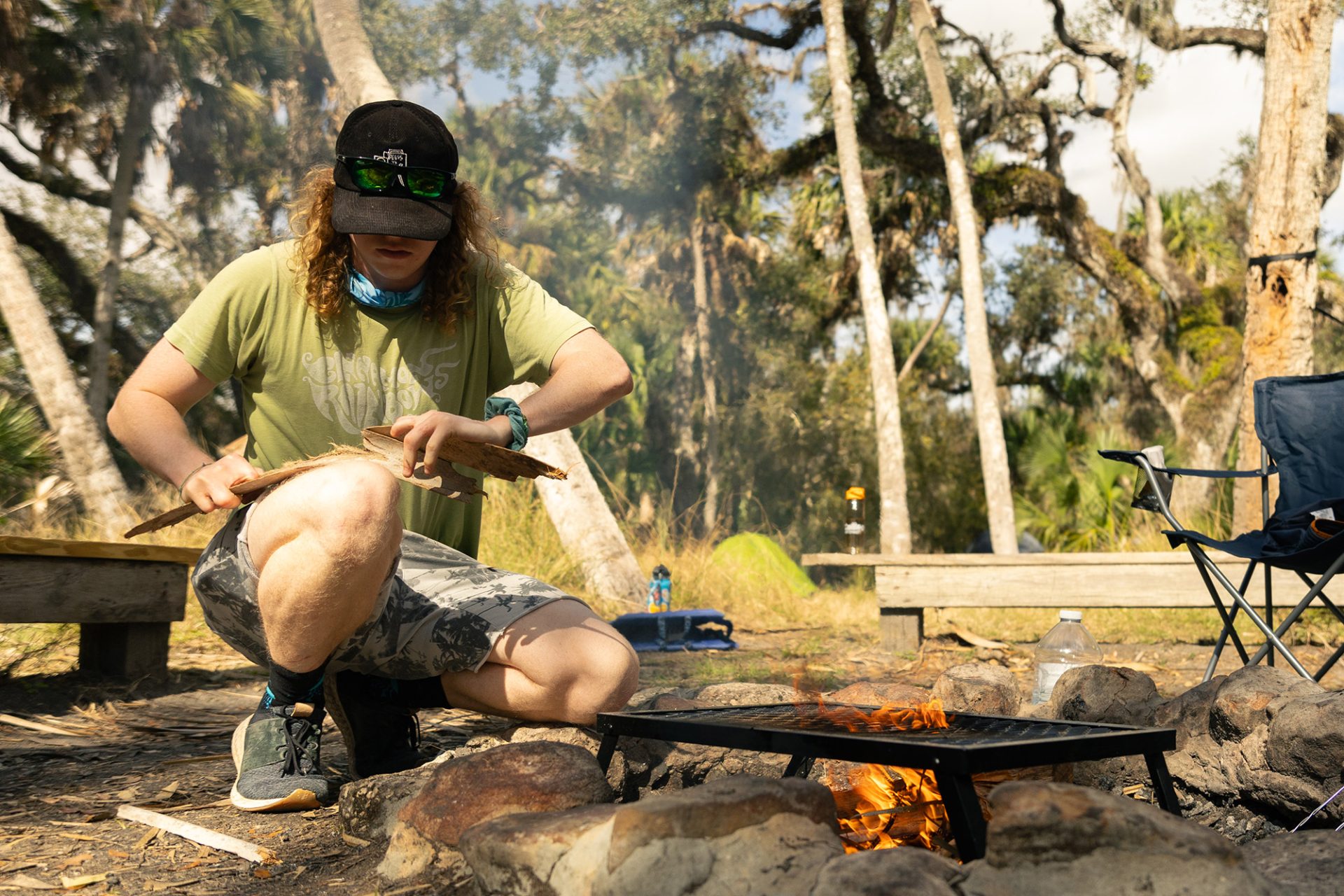For some of Assistant Professor of Psychology Sarah Lyle’s students, it was their first time ever sleeping outside.
The “Psychology of Survivor” Winter Term course at Eckerd College wrapped up its three-week run in January with a two-night camping trip in Myakka River State Park, so students could experience firsthand some of the stressors of being removed from creature comforts.
“There’s something magical about stepping out of the classroom for a bit and disconnecting from cellphones and the internet,” says Sarah Lyle, Ph.D., whose love for CBS’ long-running TV show Survivor started in graduate school when she binged dozens of its 45 seasons in a single year.
During the Winter Term trip, Eckerd students hiked, kayaked and occasionally took part in team challenges such as relay races. Students earned points in each challenge toward becoming the class “Survivor,” but all the competitions were team-based through random draw.
In class—as in the game of Survivor—success isn’t achieved in a vacuum or based solely on innate skill or merit. Relationships matter. And so does self-confidence.
“The field trips were a great way to bond with classmates and break up the usual routine,” says Jamie Edwards, a junior marine science student from Henrico, Virginia. “Even the homework was enjoyable to me as the topics discussed were intriguing and it was awesome to be able to compare them to Survivor. I hardly knew most of the people in this course to start out with, but I feel like I could easily hang out with them again sometime just as friends instead of as classmates.”
Lyle, whose research focuses on stress and resilience, stumbled upon the class’s textbook while googling books about her favorite show. The Psychology of Survivor is a collection of essays exploring every aspect of the show from the effect of environmental stressors on decision-making to the cognitive biases possibly at play that keep women and people from marginalized groups from winning the coveted title.
A regular day in the classroom begins with a review of the leaderboard for points scored in the previous day’s challenge, followed by a random team challenge (sometimes mazes, word scrambles, or paper races), a discussion of the reading from the text, and then a viewing of the next episode of Survivor 37: David vs. Goliath. The challenges are meant to excite students and increase buy-in for the academic exploration of what contestants go through to be crowned the winner of a season, Lyle says.
“At first, some students were reluctant because they were scared of failure and judgment from their classmates. They didn’t want to volunteer for fear someone would look down on them if they didn’t do well,” Lyle adds. “After a few challenges, they started to see that they were there to celebrate one another and if they fail, their teammates will love them through that failure because they were all there struggling together.”
Liza Wolf, a junior marine science and animal studies student from Menlo Park, California, is a Survivor superfan who picked the class solely because she’d get to engage with others about her favorite show.
“This was not the first psychology class I have taken, but it was by far the most interesting,” Liza explains. “Many of the concepts we discussed I already knew about, but I learned new information about all of them, such as cognitive dissonance and the fundamental attribution error … Specifically, what this course succeeded in was to prove the point that psychology applies to everything in our lives.”















